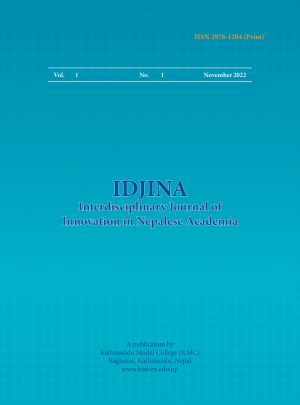The L2 Motivational Self System among Nepalese College Level Learners of English
Keywords:
L2 motivational self-system, Ideal L2 self, the-Ought-to self, L2 learning experience, instrumentality, cultural interestAbstract
The main purpose of the study is to validate Dörnyei’s L2 Motivational Self System (2005; 2009) among Nepalese college level learners in a rural district of Nepal named Solukhumbu. In particular, the study aims to find out which among the three dimensions (Ideal L2 self; the- Ought to L2 self; L2 learning experience) of Dörnyei’s L2 motivational self-system impact the learners motivation in learning second language. The study employed 50 survey questions along with six background questions to the data. Correlation analysis of the data provides considerable empirical support for the validity of the L2 motivational self- system and its relevance in Nepalese context, with Ideal L2 self as the strongest predictor among the three dimensions of Dörnyei’s L2 motivational self-system along with some relation to L2 learning experience while comparing Ought to L2 self. However, Instrumentality prevention came to be the strongest contributor to the criterion measure, whereas instrumentality promotion contributes more to the ideal L2 self, highlighting the need to understand the association of English targeting future goals to become successful and to find better job.
Downloads
Downloads
Published
How to Cite
Issue
Section
License
Copyright (c) 2022 Kathmandu Model College

This work is licensed under a Creative Commons Attribution-NonCommercial-NoDerivatives 4.0 International License.
This license allows reusers to copy and distribute the material in any medium or format in unadapted form only, for noncommercial purposes only, and only so long as attribution is given to the creator.




